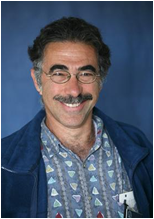Keynote Speaker
Dr. Basseches provided a panoramic review of his 45 years studying dialectical thinking and adult development. The journey began around 1970 with noticing commonalities in writings and explanations and using the term “dialectical thinking” to name these commonalities, but without being able to describe and explain them; it led to his interest in 2015 in the importance of the development of dialectical thinking for the success of social movements attempting to confront the planetary challenges of the current “global era.” The framework for this review was explaining and inviting discussion of the series of questions which Basseches tried to address through formal and informal research and writing of the past 4 decades, since recognizing the relevance of dialectical thinking to the study of adult development. These questions included:
- How can we describe what dialectical thinking is as a form of organization?
- How can we describe the relationship between 1) the organization of dialectical thinking and the equilibrium it provides and 2) the organization of formal operational thinking and the equilibrium it provides?
- How can we describe dialectical thinking as a “third way” intellectual sensibility contrasting with both Universalistic Formal Thinking and Relativistic thinking?
- How can we recognize dialectical thinking when we see it?
- What were the relationships between the Dialectical Thinking model of Adult Development and then extant theories of adult development?
- What fosters the development of dialectical thinking in the contexts of 1) Higher Education? 2) The Workplace? 3) “Predictable Crises of Adult Life”?
- How, in the context of intellectual development, do we understand felt experiences of actions and emotions that seem inconsistent with one’s own “reasoning”?
- How can we understand all successful psychotherapy (across theoretical approaches) as fundamentally constituted by relational dialectical processes including 1) understanding what obstructs these processes in cases of ineffective or destructive psychotherapy and 2) understanding psychotherapy and supervision of psychotherapy as contexts for adult development?
Michael Basseches is currently Professor Emeritus of Psychology at Suffolk University, Boston, USA, and Visiting Professor of Psychology at Universidade de Lisboa, Portugal. He also maintains a private practice of psychotherapy and supervision in Cambridge and Gloucester, Massachusetts and in Lisboa. Born in Greenwich Village in New York City, he received his BA in Psychology and Philosophy from Swarthmore College in 1972 and his PhD in Personality and Developmental Psychology from Harvard University in 1978 (dissertation title: Beyond Closed-System Problem Solving: A Study of Metasystematic Aspects of Mature Thought). His many writings and presentations include 3 books:
- Dialectical Thinking and Adult Development (1984)
- Psychotherapy as a Developmental Process (with M.F. Mascolo, 2010)
- Toward a Socially Responsible Psychology for a Global Era (co-edited with E. Mustakova-Possardt, M. Lyubansky, and J. Oxenberg, 2014).
In addition to 20 years at Suffolk University during which time he served as Director of Clinical Training for the PhD program in Clinical Psychology, he also served on the faculties of Swarthmore College, Cornell University, Massachusetts School of Professional Psychology, The Clinical-Developmental Institute and Harvard University Continuing Medical Education Programs as well as on the staff of Harvard’s Bureau of Study Counsel.
He welcomes email at [email protected].

